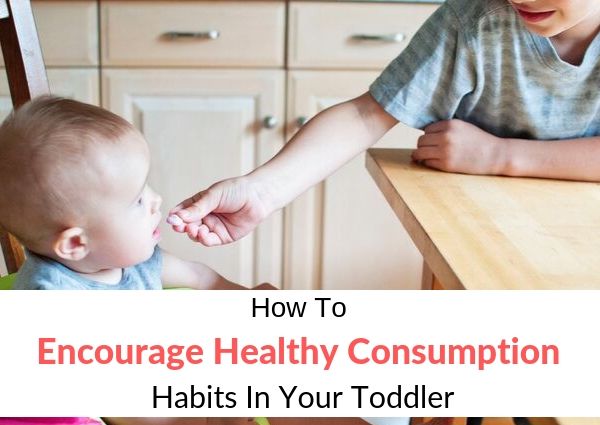How To Encourage Healthy Consumption Habits In Your Toddler
In the following we will be discussing about an important topic that is “How to Encourage Healthy Eating habits in your Toddler” and will discuss about it in detail within the article:By teaching your toddler healthy eating habits, and modeling these behaviors in yourself, you can help your toddler maintain a healthy weight and normal growth. Also, the eating habits your toddler pick up when they are young will help them maintain a healthy lifestyle when they are adults.
Your child’s health care provider will assess your child’s weight, height and explain their BMI and let you know if your child needs to lose or gain weight or if any dietary changes need to be made. Some of the most vital aspects of healthy eating are portion control and reducing how much fat and sugar your kid eats or drinks. Simple ways that reduce fat intake in your child’s diet and promote a healthy weight include serving:
- Low-fat or nonfat dairy products
- Poultry without skin
- Lean cuts of meats
- Whole-grain bread and cereals
- Healthy snacks such as fruit and veggies
Also, cut back the amount of sugar-sweetened drinks and salt in your child’s diet. If you’re unsure regarding how to choose and prepare a variety of foods for your family, consult a registered dietitian for nutrition counseling. It is important that you do not place your overweight toddler on a restrictive diet. Toddlers should never be placed on a diet that is restrictive to lose weight unless a doctor supervises one for medical reasons. Other approaches parents will take to develop healthy consumption habits in their kids include:
You must guide your families’ choices rather than dictate foods. Make a wide variety of healthful foods available in the house. This practice can facilitate your children to learn how to make healthy food choices. Leave the unhealthy selections like chips, soda, and juice at the grocery store. Serve water with meals.
Encourage your children to eat slowly. A child will detect hunger and fullness better when they eat slowly. Before providing a second helping or serving, ask your kid to wait at least 15 minutes to check if they’re truly still hungry. This will give the brain time to register fullness. Also, that second helping ought to be much smaller than the first. And if possible, load that second helping with a lot of veggies
You must eat meals together as a family as often as possible. Try to build mealtimes pleasant with conversation and sharing, not a time for scolding or arguing. If mealtimes are unpleasant, kids might try to eat quickly to leave the table as soon as possible. They then might learn to associate eating with stress.
Involve your children in food shopping as well as preparing meals. These activities will offer you a hint regarding your children’s food preferences, an opportunity to teach your kids about nutrition and provide your kids with a feeling of accomplishment. In addition, kids may be more willing to eat or try foods that they assist prepare.
Plan for snacks. Continuous snacking could lead to overeating, however, snacks that are planned at specific times throughout the day can be a part of a nourishing diet, without spoiling a child’s appetite at mealtimes. The snacks you make should be as nutritious as possible, without depriving your youngsters of occasional cookies or chips, particularly at parties or any other social events. Have healthy snacks reachable and at eye level.
Set some family goals. Perhaps restricting desserts to weekends and only having sodas on weekends. Making sure water bottles are empty before the time for dinner. to encourage hydration
You must discourage eating meals or snacks while watching TV. You should try to eat only in designated areas of your home, like the kitchen or dining room. Eating in front of the TV could make it tough to pay attention to feelings of fullness, and may lead to overeating.
Encourage your children to drink more water. Overconsumption of sweetened drinks and sodas has been linked to increased rates of obesity in children.
You need to try not to use food to punish or even reward your toddlers. Withholding food as a penalty could lead kids to worry that they’ll not get enough food. For instance, sending your toddler to bed without any dinner as a punishment may actually cause them to worry that they will go hungry. As a result, toddlers may try to eat whenever they get a chance. Similarly, when foods, like sweets, are used as a reward, children may assume that these foods are better or more valuable than other foods. For instance, telling your toddlers that if they eat all of their vegetables they will get dessert, this sends the wrong message about vegetables.Get in touch with our team for the Child Specialist in West Delhi
You need to make sure your toddler’s meals that are outside the home are balanced. Find out more regarding their school lunch program, or pack their lunch to include a variety of foods. Also, select healthier items when dining at restaurants.
Pay attention to portion size and ingredients. Read food labels and limit foods with trans-fat. Also, ensure you serve the appropriate portion as indicated on the label.

